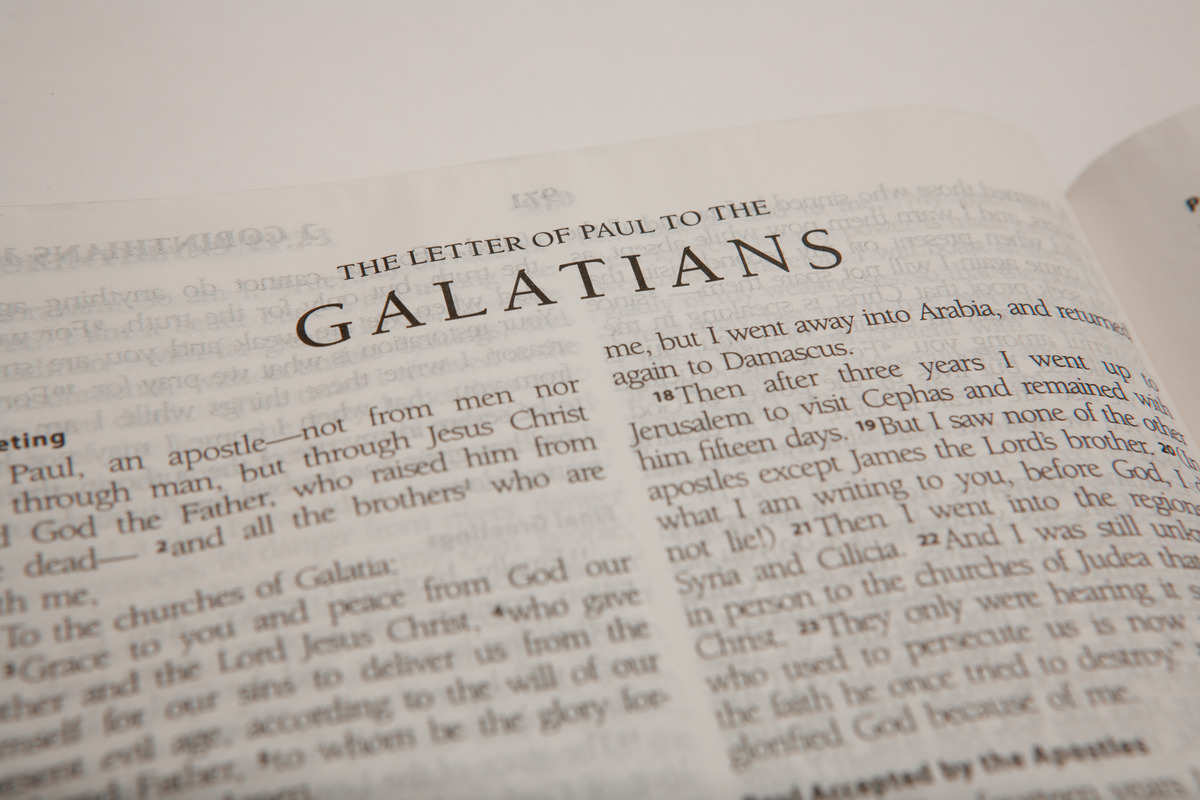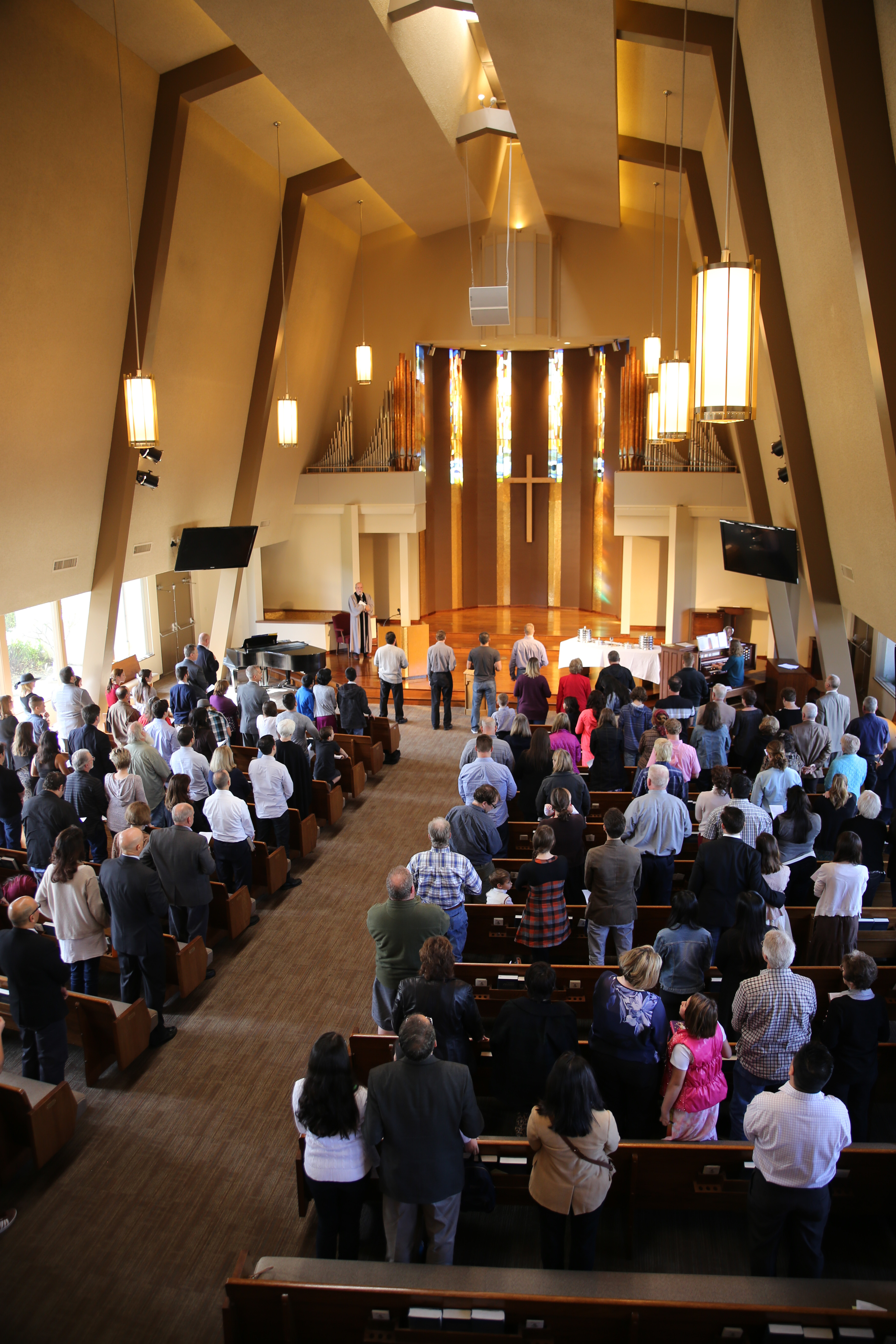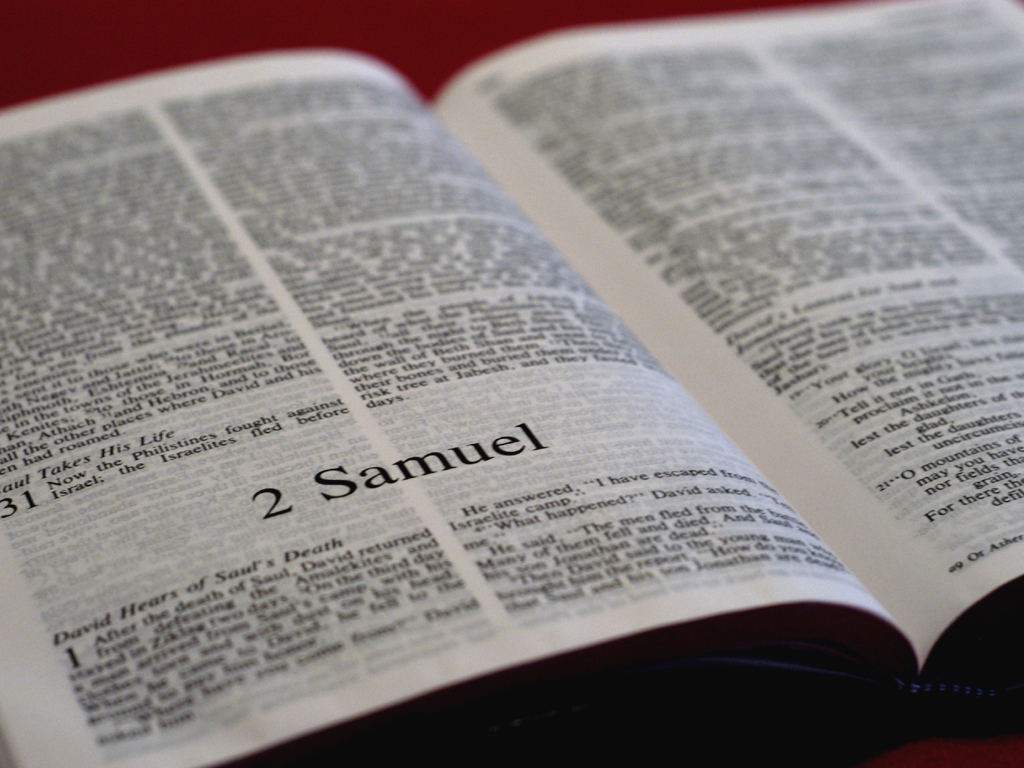"How Can You Turn Back?" -- Galatians 4:8-20
 Tuesday, December 18, 2018 at 11:47AM
Tuesday, December 18, 2018 at 11:47AM 
The Seventh in a Series of Sermons on the Book of Galatians
Whenever legalism rears its ugly head, slavery to the “basic principles of the world” is not far behind. Once enslaved to the basic principles of the world, the blessedness of knowing that Jesus died for the forgiveness of all our sins, and that our Lord fulfilled the law for us so that we can be justified, will soon disappear. Ask a slave if there is joy in bondage. Ask a freeman if he wishes to return to slavery. But this is the very thing the Judaizers were imploring the Galatians to do–turn back to the things which once enslaved them, and this after Jesus came to set them free.
Paul’s letter to the churches in Galatia is his response to an attempt by a group of Jewish converts to Christianity to infiltrate the churches which the apostle had recently helped to found, with the express intention of undermining the gospel that Paul previously proclaimed in these churches. Preaching what Paul calls a false gospel, these false teachers–known as the Judaizers–contended that Paul’s gospel of free grace inevitably leads to license. They worked their way into the Galatian churches secretly and began spying on Gentiles exercising their liberty in Christ, then arguing that Paul’s gospel is dangerous because it supposedly encourages people to live in utter disregard to the law of Moses and the traditions of the fathers of Israel. In this incident, we witness a collision between a false gospel based upon human merit and obedience to the law of Moses, and the gospel of Jesus Christ which is anchored in the free and sovereign grace of God, made manifest in the life and death of our Lord.
From the apostle Paul’s perspective, this is a battle over the fundamental nature of Christianity, a battle which determines whether or not Christianity is centered in the redemptive work of Christ, or in human merit, as is typical of all other religions. Paul has made it clear that through faith in Jesus Christ, even Gentiles become heirs to all the promises that God made to Abraham. It is through faith in Christ that we receive the gift of the Holy Spirit and are justified. None of these blessings come to us because we earn them through good works. Furthermore, by virtue of our union with Christ, all racial and social distinctions specifically related to our standing before God are removed (cf. 3:28). In Christ, there is no longer any distinction between Jew and Greek, male and female, slave and free. We are now one.
The visible sign and seal of this unity is baptism, through which the believer “puts on Christ.” Once clothed in the robe of Christ’s glorious and perfect righteousness, the believer, who was formerly estranged, an alien, and a foreigner to the things of God, is now regarded as an adopted son or daughter, entitled to the full inheritance from his heavenly father. As such, all believers, whether they be Jew or Gentile, slave or free, male or female, have the privilege of intimate fellowship with God, just as the true Son of God, Jesus Christ did. As God’s adopted children, we too, cry out “Abba, Father.”
We will cover verses 8-20, beginning with Paul’s description in verses 8-10, of the continuing efforts of the Judaizers to infiltrate the Galatian churches with the goal of returning them to the legalistic principles of Judaism. “Formerly, when you did not know God, you were enslaved to those that by nature are not gods. But now that you have come to know God, or rather to be known by God, how can you turn back again to the weak and worthless elementary principles of the world, whose slaves you want to be once more? You observe days and months and seasons and years!”
Paul is taking up the matter of what happens when full-grown and mature sons and daughters of God return (as mentioned in vv 1-7 of chapter 4) to the “basic principles of the world” (the stoicheia) as the means of receiving their inheritance from their Father. Rejecting God’s way and returning to the former way of seeking to establish their own righteousness, the Judaizers strive to gain their inheritance through human merit and external ceremonies instead of through faith in the saving work of Jesus. This raises a number of questions. “What happens when so-called Christians seek to turn back the clock of redemptive history?” “Should we go looking for our inheritance in the endless wilderness of the Sinai?” “Should we seek good things from the slave-masters who ruled over God’s people during their bondage in Egypt?” “Should we seek good things from those who held us captive in Babylon?” Paul’s answer is remind us that should we do so, we have turned our backs on the finished work of Jesus Christ.
To read the rest of this sermon, Click Here










